The US National Security Agency was forced on Sunday to deny that its director ever discussed a surveillance operation against the German chancellor with President Barack Obama, as the White House tried to contain a full-scale diplomatic crisis over espionage directed at allied countries.
The Obama administration appeared in disarray as it struggled with the fallout over the disclosure that the National Security Agency monitored the phone conversations of at least 35 world leaders, and that the phone of the German chancellor, Angela Merkel, had been monitored.
Early on Sunday, the White House refused to comment on an overnight report in the German tabloid Bild, which alleged that Obama was personally briefed about by the operation to target Merkel's phone by the NSA's director, Keith Alexander, and allowed it to continue.
That appeared to conflict with a second report, in the German newspaper Frankfurter Allgemeine Sonntagszeitung. It said that when Obama spoke to Merkel over the phone on Wednesday, he assured the German leader he had not previously known her phone had been monitored.
Caitlin Hayden, the White House's national security council spokeswoman, declined to comment on the reports, telling the Guardian: "We are not going to comment publicly on every specific alleged intelligence activity."
However just over three hours later, that position appeared to have been reversed, when the NSA said in a statement that Alexander "did not discuss with President Obama in 2010 an alleged foreign intelligence operation involving German Chancellor Merkel, nor has he ever discussed alleged operations involving Chancellor Merkel. News reports claiming otherwise are not true".
Bild cited "a secret intelligence employee who is familiar with the NSA operation against Merkel" in its story, which was widely-picked up by global media.
The intervention by the NSA was unusual – the agency rarely comments publicly on specific allegations about its surveillance activities.
However the White House and NSA are coming under intense pressure to reveal the extent to which Obama and senior administration officials knew about US surveillance operations targeting the leaders of allied countries.
The agency did not dispute another report in Germany, based on documents disclosed by the whistleblower Edward Snowden, that the NSA's Special Collection Service (SCS) had listed Merkel's phone number since 2002. The report, in Der Spiegel, said the phone number was still on the list – marked as "GE Chancellor Merkel" – weeks before Obama visited Berlin in June, raising the possibility that the German leader had been under surveillance for more than a decade.
In an SCS document cited by the magazine, the agency said it had a "not legally registered spying branch" in the US embassy in Berlin, the exposure of which would lead to "grave damage for the relations of the United States to another government".
A delegation of German intelligence officials are due to arrive in the US to meet counterparts in the coming days. They are expected to demand clarity on the nature and scope of NSA activities in their country.
'A greater focus'
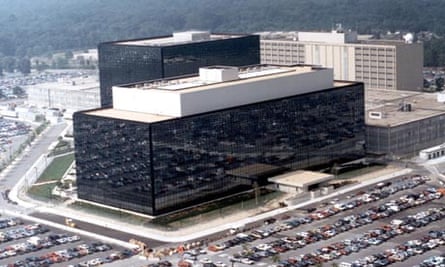
However in Washington, the first signs are emerging that Obama's administration may seek to distance itself from the NSA, concluding that the spy-agency has strayed beyond its remit and overreached. Many senior figures in Congress have already said the NSA failed to properly inform them of the nature and scope of its surveillance activities.
Lisa Monaco, a homeland security advisor to the White House, called on Friday for a "greater focus" to ensure the US was balancing "security needs with the privacy concerns all people share". Her op-ed piece in USA Today was widely interpreted as a signal of growing concern within the administration.
Monaco wrote: "We want to ensure we are collecting information because we need it and not just because we can."
In August, announcing a review of US intelligence activities in the aftermath of the first disclosures based on documents leaked by whistleblower Edward Snowden, Obama gave the impression that the NSA was solely focused on counter-terrorism measures.
"I don't have an interest and the people at the NSA don't have an interest in doing anything other than making sure that where we can prevent a terrorist attack, where we can get information ahead of time, that we're able to carry out that critical task," he said. "We do not have an interest in doing anything other than that."
The Spiegel report said the NSA's Berlin-based surveillance hub, adjacent to the Brandenburg gate, was one of several in Europe, citing a 2010 document that referred to branches existing in about 80 locations across the world, including Paris, Madrid, Rome, Prague, Geneva and Frankfurt. The article said it was not clear whether the monitoring of Merkel's phone included actual telephone conversations or was restricted to call data, but raised the question over whether a surveillance operation, which began three years before she became chancellor, was initially intended to gather intelligence ahead of the Iraq War, which Germany opposed.
Merkel, then in opposition, was critical of Germany's anti-war stance. Bild reported that the then-chancellor, Gerhard Schröder, was also the target of surveillance, at the behest of the George Bush administration.
A new dimension
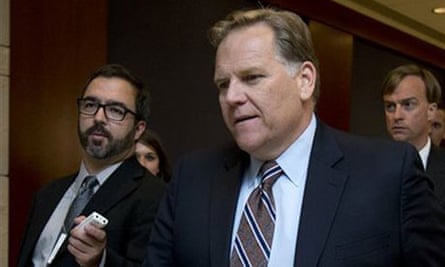
Revelations about the NSA monitoring foreign leaders – particularly allies – have blown open a dimension of the NSA scandal which, until now, has proven relatively uncontroversial in the US: surveillance conducted abroad.
The US debate over NSA surveillance has focused almost exclusively on operations that may involve US citizens – such as a program to collect the phone records of millions of Americans. Until the recent revelations, there was virtually no concern raised over surveillance involving foreign citizens, even among vocal critics of the NSA on Capitol Hill.
Legislation to reform the NSA, which is being introduced in both houses of Congress this week, focuses almost entirely upon surveillance activities that might involve US citizens. Few in Washington are challenging the administration's claim that "all nations" engage in similar forms of espionage.
However diplomatic sources have told the Guardian that the White House's declarations that its practices do not differ from those employed by "all nations" are deeply misleading.
The sources said that while the US, Russia, China, Britain and France are well-known to engage in aggressive cyber espionage, including against allies, many other countries do not have anywhere near the same surveillance infrastructure – and concentrate their more limited resources on counter-terrorism and serious crime.
The revelations about NSA activity in Germany were discussed on the US Sunday morning political talkshows. Speaking on Face the Nation, on CBS, the Republican Darrell Issa, the chairman of the House oversight and government reform committee was asked if he thought Obama had known about the surveillance of Merkel's phone.
He said: "Remember, the NSA works for the president. Through his national security advisers he knew or should have known."
Asked about the propriety of such surveillance, Issa answered: "If what you do in Germany helps the Germans, then fine. But you don't spy on a head of state."
Mike Rogers, the Republican chair of the House intelligence committee, was more bullish in defending surveillance practices, criticising press coverage of the latest NSA revelations and arguing that Europeans were unaware of the extent of surveillance conducted by their own governments and had been misled by incorrect media reports about the nature of NSA activities.
He told CNN recent reports in France about the NSA's monitoring of millions of phone calls in the country were "100% wrong".
"I would argue by the way, if the French citizens knew exactly what that was about, they would be applauding and popping champagne corks," he said. "It's a good thing – it keeps the French safe."
Going further, Rogers claimed that the emergence of fascism in Europe in the early 20th century could be partly explained by a conscious decision by the US not to monitor its allies.
"We said: 'We're not going to do any kinds of those things, that would not be appropriate," he said. "Look what happened in the 30s: the rise of fascism, the rise of communism, the rise of imperialism. We didn't see any of it. And it resulted in the deaths of tens of millions of people."
Rogers added: "Remember: sometimes our friends have relationships with our adversaries."

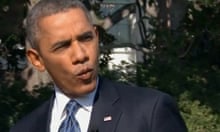
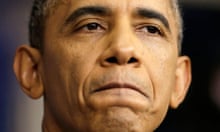
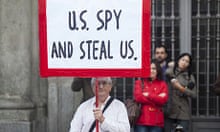
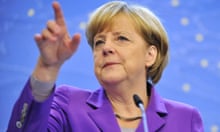



Comments (…)
Sign in or create your Guardian account to join the discussion